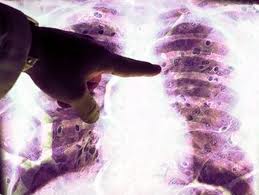Mesothelioma is the term used for a cancerous tumor, which involves the mesothelioma cells of lungs, heart or abdominal organs. Mesothelioma medical experts provide treatment to a patient after assessing the developmental stage of the cancer in patient’s particular case. The location of the cancer, the level to which it is spread and the age and general health condition of the patient are analyzed by the medical specialist.
Four Stages of Malignant Mesothelioma
Malignant mesothelioma is a disease in which the malignant cells are found in the sac that lines the chest or abdomen. There are four stages of malignant mesothelioma.

Stage One – Localized Mesothelioma
The first stage is localized mesothelioma and the remaining three are considered advanced stages of mesothelioma. Localized mesothelioma is the phase wherein the cancer is discovered in the lung, diaphragm or in the lining of the chest cavity. The patients in their first stage of mesothelioma get their cancer surgically removed by pleurectomy or decortication or extrapleural pneumonectomy.
Stage Two
In the second stage, the cancer is detected to have spread beyond the lining of the chest cavity.
Stage Three
In the third stage, the tumor growth spreads into several areas that include chest wall, center of the chest, heart, and throughout the diaphragm. The treatment in the second, third and fourth stages of mesothelium are done in tandem with supportive care. The treatment for these advanced stages focuses on providing a patient with relief from symptoms, as total cure is generally not achieved. The treatment methodology includes thoracentesis that removes fluid accumulation in the chest cavity, operations to remove the tumor and radiation therapy or chemotherapy aimed at easing symptoms.
Stage Four
In the fourth stage, the cancer is in the process of distant metastasis, which implies that it has spread to other organs and tissues far from its site of origin in the pleural, peritoneal, or pericardial mesothelium. Patients suffering from the fourth stage should enroll themselves in clinical trials that evaluate the newest treatment possibilities in large medical centers. Pain management is an essential aspect of the care of such patients. It is important for patients to know that medications are available to effectively treat pain due to mesothelioma. They should request pain medications or discuss pain control problems with their cancer care team.
Discover more about treatment options, and in particular clinical trials for mesothelioma at the web site for Mesothelioma Research Foundation of America.
MesoRFA.org provides detailed information on Mesothelioma Treatment, Mesothelioma Treatment Options, Alternative Mesothelioma Treatment, New Mesothelioma Treatment and more.
